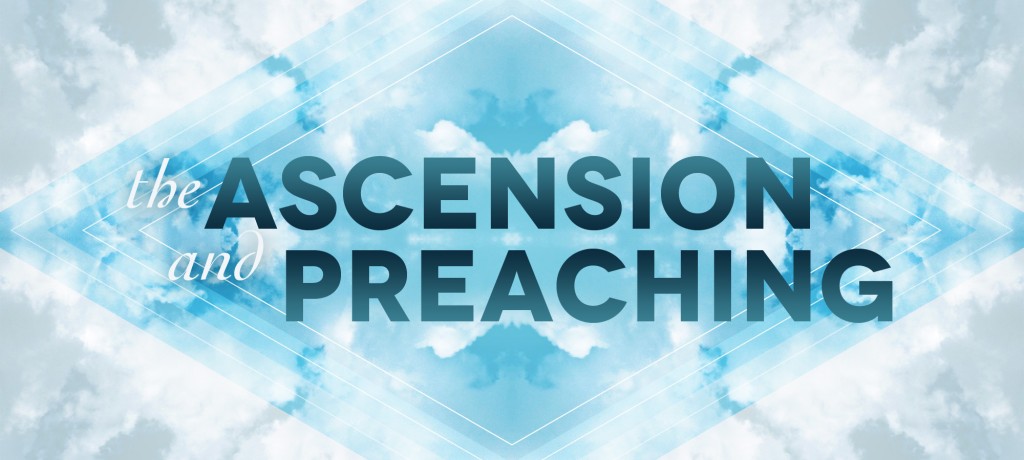I remember sitting in a systematic theology class at RTS while Doug Kelley lectured on Christology. When he got to the ascension and session of Christ he said something like, “If any of you do doctoral work, consider doing it on the ascension. It is woefully neglected.”
It was one of those random asides from a professor that sticks with you.
Ever since then I have kept my eye out for books on the ascension, but the years have proven Dr. Kelley to be quite the prophet. The ascension of Christ does indeed seem to be the forgotten aspect of Christ’s work.
Tim Chester and Jonny Woodrow bucked the trend last year by publishing The Ascension: Humanity in the Presence of God. It is theological pithiness at its finest. In just over 75 pages they unpack how Christ’s ascension is paradigmatic to our understand of and mission for Christ.
HOW THE ASCENSION SHAPES PREACHING
Chapter two is a masterful exposition of Jesus’ ascension as His enthronement as king. Along the way they rightly observe how the ascension profoundly impacts our understanding of evangelism. If we substitute “preaching” for “evangelism” here’s what we get:
When we proclaim the gospel we are heralds of a coming king. It is as if we go to the citizens of a country and say that a king is coming who rightly claims their allegiance. Those who currently rule them are usurpers and tyrants. But the true king is coming and He will be king. He will reign.
This is what takes place in [preaching]. We declare that Jesus is king and that Jesus will be king. The earliest encapsulation of the Christians message is ‘Jesus is Lord’ – confessed at a time when the rest of the world was declaring Caesar to be Lord (Rom. 10:9). Jesus has been given all authority by the Father and one day every knee will bow before Him. If people acknowledge His lordship now, they will experience His coming rule as blessing, life and salvation. If they reject Him, they will experience His coming rule as conquest, death, and judgment.
We live in a culture where choice is everything and value judgments are relative, in which I decide what is right for me. The declaration of Christ’s kingship cuts right across this. We do not invite people to make Jesus their king; we tell people that Jesus is their king. We do not invite people to meet Jesus; we warn people that they will meet Jesus as their conquering king, either through the gospel or as their judge on the final day. We do not offer people a gospel invitation; we command people to repent and submit to the coming king. Of course we do this graciously and gently (1 Pet. 3:16). We cannot force or manipulate repentance. But one day everyone will bow the knee before Jesus one way or another (Phil. 2:9-11). . . .
Nothing could be more momentous for life on earth than Jesus’ ascension. This story creates [preachers] who proclaim Him boldly in the face of hostility. . . . It is an event to be publicly proclaimed to all nations. It does not create a church bunkered down in a ghetto, but a church that confidently proclaims the coming of Earth’s king.
Amen!

